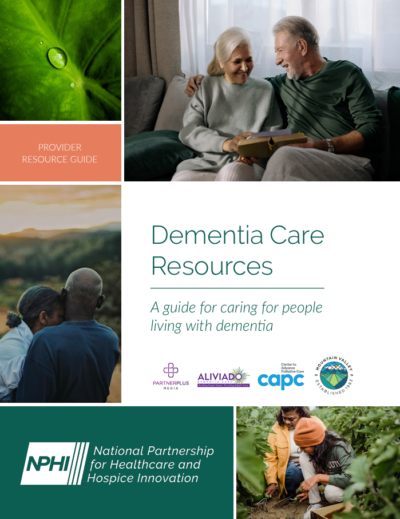Specialist Memory Care Charlotte: Enhancing Lifestyle for Those with Memory Loss
Specialist Memory Care Charlotte: Enhancing Lifestyle for Those with Memory Loss
Blog Article
Just How to Offer Significant and Individualized Mental deterioration Care
The provision of meaningful and customized mental deterioration care needs a nuanced understanding of each person's unique history and preferences. Care strategies need to be customized to engage the person in methods that resonate with their previous experiences, thus cultivating psychological links and enhancing overall well-being.
Recognizing Mental Deterioration Individuality

Care service providers have to analyze cognitive capabilities, emotional states, and behavioral patterns to develop individualized care strategies. This might include adapting communication styles, utilizing familiar regimens, and using significant activities that reverberate with the individual's past experiences. Involving a person with a passion for music with music activities might evoke favorable memories and boost emotional well-being.
Moreover, understanding individuality cultivates a compassionate technique that values the self-respect and freedom of those living with mental deterioration. It encourages caretakers to listen proactively, observe behavior signs, and continue to be flexible in their caregiving approaches (memory care facility charlotte). By prioritizing originality, caregivers can not just improve the lifestyle for those with dementia but likewise build an extra profound understanding of their special perspectives, inevitably leading to more understanding and reliable care
Building Trust Fund and Rapport
Developing depend on and connection is fundamental in dementia treatment, as it creates a supportive and secure environment for individuals affected by the condition. Building these links needs consistent, compassionate interactions that focus on the needs and sensations of the person. Caregivers need to come close to communications with compassion, identifying the special obstacles faced by those with dementia, consisting of memory loss, confusion, and psychological distress.
Caretakers should use clear, basic language and non-verbal signs to communicate understanding and support. Active listening shows regard and recognition, enabling people to share themselves without fear of judgment.
Familiarity with everyday tasks and caretakers promotes a sense of stability, making it possible for individuals to really feel even more at ease. By doing so, caretakers enhance the individual's identity, promoting dignity and regard, eventually leading to more powerful, more significant partnerships in the context of dementia care.
Tailoring Tasks and Engagement
Engaging people with dementia via customized tasks can substantially improve their quality of life and cultivate a deeper link between caretakers and those in their care. Personalization is essential, as it recognizes the special backgrounds, passions, and capabilities of each person. Tasks ought to be made to boost cognitive functions, promote physical activity, and encourage social communication, all while remaining delightful and satisfying.
To customize tasks effectively, it is important to evaluate the person's choices and cognitive abilities. Furthermore, integrating aspects of routine can offer convenience and security, allowing individuals to engage with activities more confidently.
Caretakers can improve engagement by taking part together with the individuals, cultivating a helpful and interactive atmosphere. It is also essential to continue to be flexible and flexible, readjusting tasks as required based on the person's energy degrees and state of mind. Eventually, meaningful engagement through customized tasks not only uplifts people with dementia yet likewise improves the caretaker connection, advertising common pleasure and understanding.
Efficient Interaction Techniques
Efficient interaction is important in mental deterioration care, as it promotes a feeling of link and understanding between individuals and caregivers experiencing cognitive decline. Employing efficient interaction strategies can dramatically enhance the quality of communications and lower disappointment for both events.
Firstly, using basic, clear language is crucial. Brief sentences look at this site and familiar words help individuals comprehend and respond better. Additionally, maintaining a calm and positive tone can create an encouraging environment, which is essential for people who might really feel confused or anxious.
Non-verbal interaction plays a substantial function too. Caretakers ought to pay interest to body language, faces, and gestures, as these cues can usually communicate even more browse this site than words - charlotte care home. Developing eye contact and utilizing gentle touch can likewise enhance links and convey empathy
Active listening is an additional vital element. Caregivers should listen, allowing individuals to share themselves fully, even if their speech is fragmented or uncertain. This lionizes and encourages extra open interaction.
Last but not least, validating experiences and sensations is critical. Recognizing feelings, regardless of their basis in fact, can provide comfort and reinforce the caregiver-individual partnership, promoting an extra helpful atmosphere.
Supporting Family Participation
Family members participation plays a considerable duty in the overall treatment and support of individuals with dementia. Involving family participants produces a joint atmosphere that improves the high quality of care, promotes emotional connections, and makes sure that the one-of-a-kind demands of the person are satisfied. Member of the family typically possess invaluable insights into the person's background, choices, and behaviors, which can be crucial in establishing customized treatment methods.

Additionally, relative can be urged to participate in daily treatment activities, such as taking part in meaningful conversations or assisting with familiar regimens. This not just aids endure the person's feeling of identity yet additionally enhances familial bonds. Eventually, by promoting an inclusive method that values family payments, treatment providers can improve the overall experience for both individuals with mental deterioration and their loved ones.
Final Thought
In verdict, delivering meaningful and customized dementia care demands a thorough understanding of each individual's unique history and preferences. Jointly, these techniques add to boosted top quality of life for individuals with dementia.
The provision of tailored and purposeful dementia treatment requires a nuanced understanding of each individual's one-of-a-kind background and preferences. By doing so, caretakers strengthen the person's identification, advertising dignity and respect, ultimately leading to stronger, much more purposeful connections in the context of dementia treatment.
Involving individuals with dementia through customized tasks can dramatically boost their top quality of life and cultivate a much deeper link in between caretakers and those in their care.Family participation plays a considerable role in the overall care and assistance of individuals with dementia. Inevitably, by promoting an inclusive strategy that values household payments, treatment suppliers can improve the general experience for both people with dementia and their liked ones.
Report this page